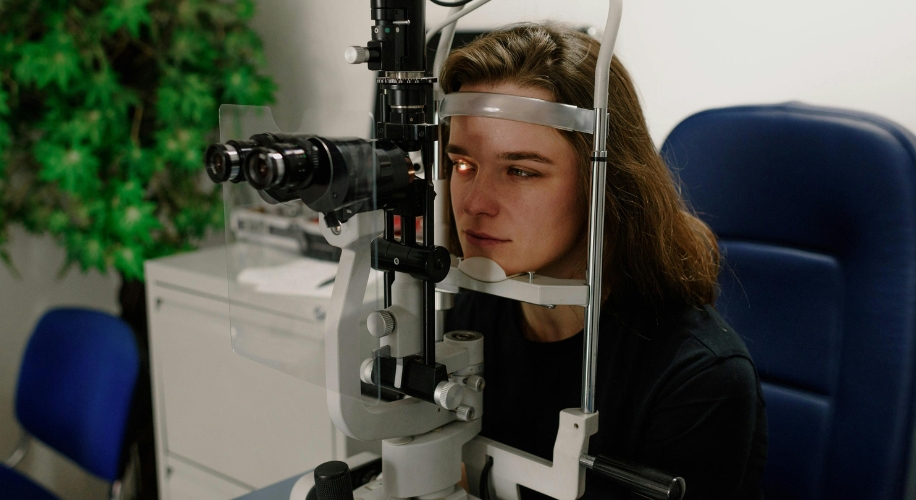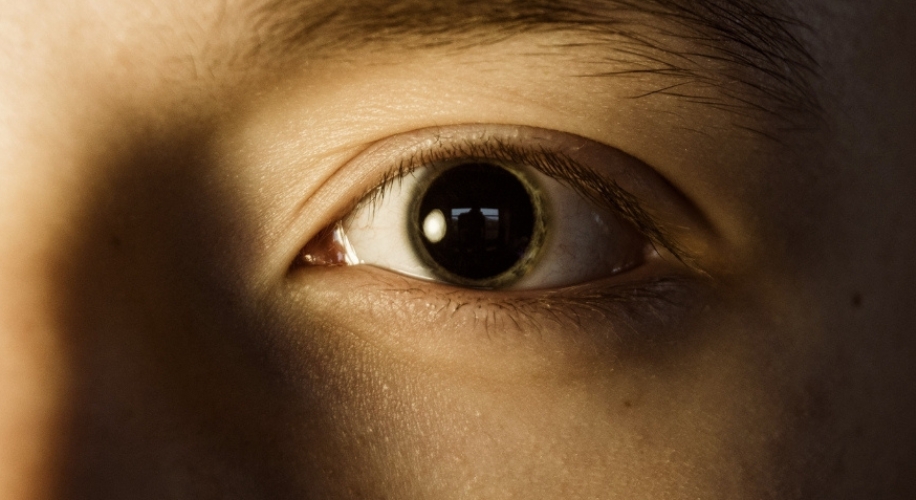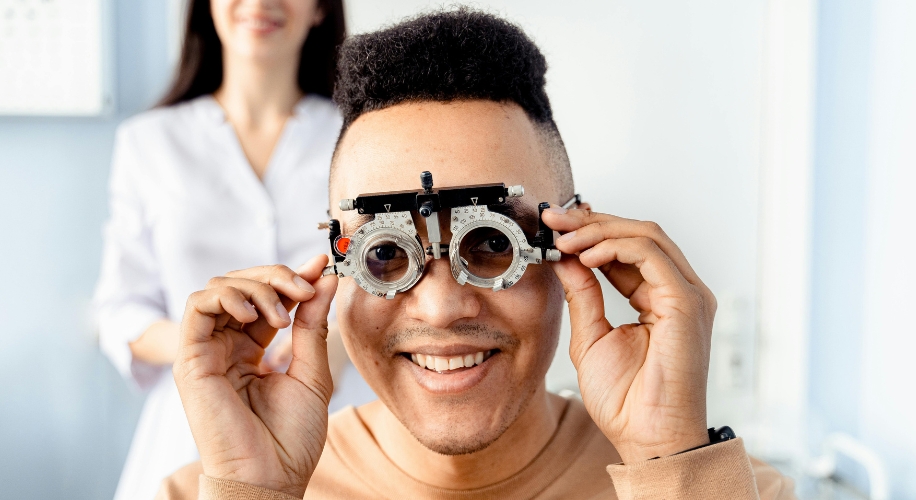Should You Get Your Eyes Dilated?
When you visit an eye doctor for a routine exam, there’s a chance they might recommend dilating your pupils. But for many people, the idea of eye dilation can be unsettling. So, what exactly does it mean to have your eyes dilated, and is it necessary for everyone? We’ll explore why dilation is important, what to expect during the process, and whether it’s something you should consider when getting an eye exam.
Photo by Ksenia Chernaya
What Does Eye Dilation Mean?
Eye dilation refers to the process of widening your pupils using special eye drops. The pupils are the black circles in the center of your eyes that control the amount of light that enters, much like the aperture of a camera. Normally, the size of your pupils adjusts automatically depending on the light around you.
However, when your eyes are dilated, your pupils remain wide open for a period of time. This allows your optometrist or ophthalmologist to get a better view of the internal structures of your eyes, including the retina, optic nerve, and blood vessels, which are important for assessing eye health.
Why Do Doctors Dilate Your Eyes?
During a routine eye exam, your doctor may want to examine parts of your eye that are otherwise difficult to see without dilation. Here’s why it’s important:
1. Better Detection of Eye Conditions
- Glaucoma: This condition causes damage to the optic nerve and can lead to vision loss if left untreated. Dilation helps doctors assess the optic nerve for any signs of damage.
- Diabetic Retinopathy: For patients with diabetes, eye dilation is crucial for detecting damage to the blood vessels in the retina.
- Macular Degeneration: Dilation can also help detect early signs of age-related macular degeneration (AMD), a condition that affects central vision.
- Retinal Tears and Detachments: Dilation allows the doctor to inspect the retina for any tears, holes, or detachment, which could lead to vision loss if untreated.
2. Comprehensive Eye Health Assessment
Even if you’re not experiencing any specific symptoms, dilation provides a more complete view of your eye health, helping detect eye diseases and problems before they manifest as visible symptoms.
3. Vision Prescription Accuracy
Dilation can help the doctor ensure they’re getting the most accurate reading of your prescription, especially in cases where the patient has difficulty relaxing their eyes, such as with young children or those who have trouble focusing. By widening the pupils, the doctor can prevent the eye’s natural focusing ability (accommodation) from interfering with the exam. This leads to a more accurate and consistent prescription, as it allows the doctor to measure the true refractive error without the eye compensating for close-up vision.
Photo by Wojtek Pacześ
What Happens During Eye Dilation?
The dilation process typically only takes about 15 to 30 minutes, but the effects can last up to several hours. Here’s what you can expect:
1. The Eye Drops
Your eye doctor will place special eye drops in each eye to widen your pupils. These drops may cause a brief stinging or slight discomfort, but the sensation typically fades quickly. If you have a history of allergic reactions to any eye drops or medications, be sure to inform your eye doctor beforehand.
2. Waiting Period
After the drops are applied, you’ll typically wait for about 20 minutes for them to take effect. During this time, you may feel a bit uncomfortable due to increased sensitivity to light. Some people may also experience blurred vision, especially for close-up tasks like reading or using a phone.
3. Examining Your Eyes
Once the pupils are fully dilated, your doctor will use specialized tools, such as a slit lamp or ophthalmoscope, to examine the internal structures of your eyes more closely. During this part of the exam, you may notice bright lights as the doctor inspects the retina, optic nerve, and blood vessels. This detailed examination helps the doctor assess the overall health of your eyes and detect any potential issues, such as retinal damage, glaucoma, or other conditions.
4. Aftercare
After the exam, your vision may remain blurry, and you’ll likely be more sensitive to light for a few hours. You might be advised to wear sunglasses or avoid bright areas until the dilation wears off.
Is Eye Dilation Necessary for Everyone?
While eye dilation is crucial for detecting a range of eye conditions, it’s not always required for every patient or every visit. If you’re young, healthy, and have no history of eye conditions, your doctor may not recommend dilation for every eye exam. However, if you’re very nearsighted, over 60, diabetic, or have a family history of eye disease, dilation is an important part of maintaining your eye health.
It’s also worth noting that some newer technology, like retinal imaging and optical coherence tomography (OCT), can provide high-quality images of the retina and optic nerve without the need for dilation. However, not all eye doctors have access to these tools, so dilation may still be recommended in certain cases.
Photo by Antoni Shkraba
Should You Get Your Eyes Dilated?
In the end, whether or not to dilate your eyes is a decision that depends on your individual health needs. If your eye doctor recommends dilation, it’s for your benefit, as it provides a clearer view of the eye’s internal structures and helps in the early detection of potentially serious conditions.
One thing to keep in mind is that dilation can cause blurred vision and increased sensitivity to light for several hours, so it’s a good idea to bring a driver with you to your appointment. This will ensure you can get home safely afterward. If you’re planning to drive yourself, it’s best to check with your doctor about how long the effects will last and whether you’ll be comfortable to drive.
Remember, regular eye exams are essential for maintaining good vision, and dilation is often a small but important part of that process. So, the next time you’re at the optometrist, don’t be afraid of those eye drops—dilation might just help keep your eyes healthy for years to come.







 Canada
Canada